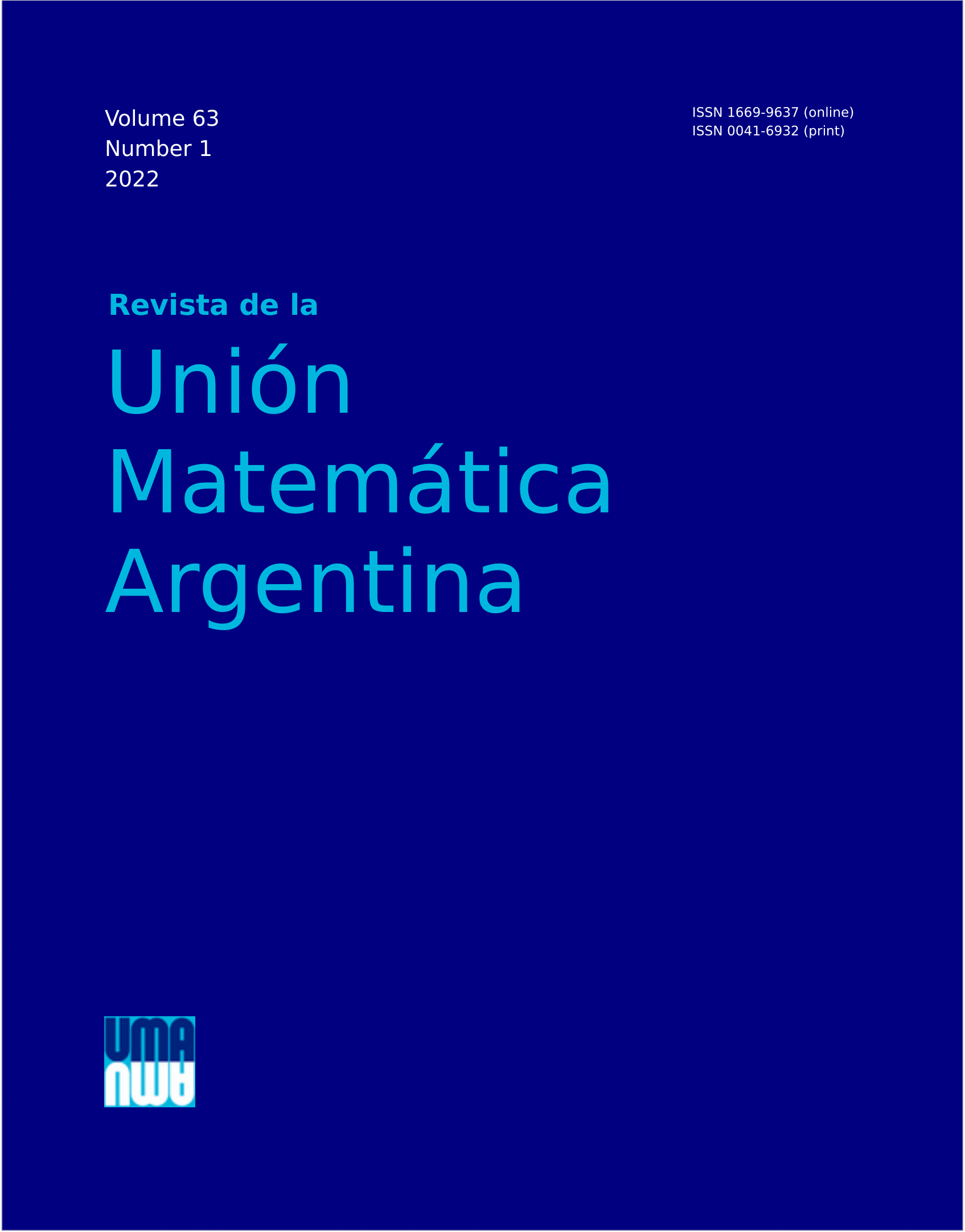A characterization of Stone and linear Heyting algebras
DOI:
https://doi.org/10.33044/revuma.2052Abstract
An important problem in the variety of Heyting algebras $\mathcal{H}$ is to find new characterizations which allow us to determinate if a given $H\in \mathcal{H}$ is linear or Stone. In this work we present two Heyting algebras, $H^{ns}$ and $H^{snl}$, such that: (a) a Heyting algebra $H$ is a Stone–Heyting algebra if and only if $H^{ns}$ cannot be embedded in $H$, and (b) $H$ is a linear Heyting algebra if and only if neither $H^{ns}$ nor $H^{snl}$ can be embedded in $H$.
Downloads
References
R. Balbes and P. Dwinger, Distributive lattices, University of Missouri Press, Columbia, MO, 1974. MR 0373985.
S. Burris and H. P. Sankappanavar, A Course in Universal Algebra, Graduate Texts in Mathematics, 78, Springer-Verlag, New York, 1981. MR 0648287.
M. Dummett, A propositional calculus with denumerable matrix, J. Symbolic Logic 24 (1959), 97–106. MR 0123476.
K. Gödel, Zum intuitionistischen Aussagenkalkül, Anz. Akad. Wiss. Wien 69 (1932), 65–66.
G. Grätzer and E. T. Schmidt, On a problem of M. H. Stone, Acta Math. Acad. Sci. Hungar. 8 (1957), 455–460. MR 0092763.
A. Horn, Logic with truth values in a linearly ordered Heyting algebra, J. Symbolic Logic 34 (1969), 395–408. MR 0253876.
L. Monteiro, Les algèbres de Heyting et de Łukasiewicz trivalentes, Notre Dame J. Formal Logic 11 (1970), 453–466. MR 0286633.
Downloads
Published
Issue
Section
License
Copyright (c) 2022 Alejandro Petrovich, Carlos Scirica

This work is licensed under a Creative Commons Attribution 4.0 International License.
Authors who publish with this journal agree to the following terms:
Authors retain copyright and grant the journal right of first publication with the work simultaneously licensed under a Creative Commons Attribution License that allows others to share the work with an acknowledgment of the work's authorship and initial publication in this journal. The Journal may retract the paper after publication if clear evidence is found that the findings are unreliable as a result of misconduct or honest error.

